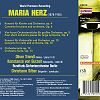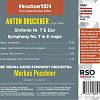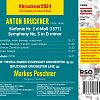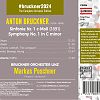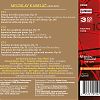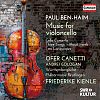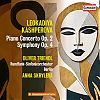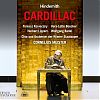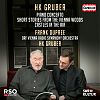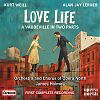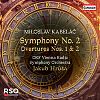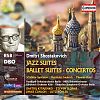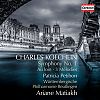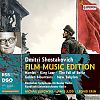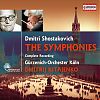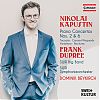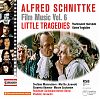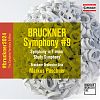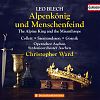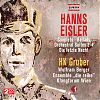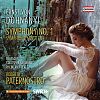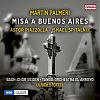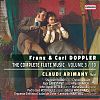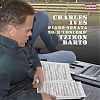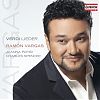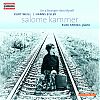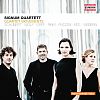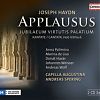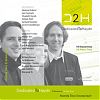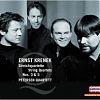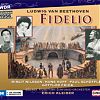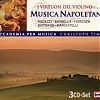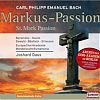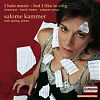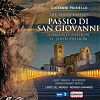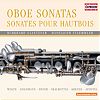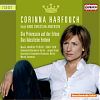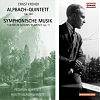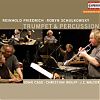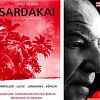cd

MARIA HERZ
Oliver Triendl Konstanze von Gutzeit RUNDFUNK-SINFONIEORCHESTER BERLIN · CHRISTIANE SILBER
Maria Herz, neé Bing, was born in 1878 in Cologne. By the 1920s, she became to be recognized as a dynamic element of the contemporary music scene. New music’s ‘chief theoretician’, Theodor W. Adorno, became interested in her works and their style, which was rooted in Late Romanticism and aimed at Modernism by way of Expressionism, New Objectivity, and Neo-Baroque, all while retaining its playful, charming air. She was close to a veritable Who’s-Who of contemporary musicians, including the Budapest String Quartett, Gregor Piatigorsky, Emanuel Feuermann, Hermann Abendroth, Otto Klemperer, and Hans Rosbaud.
In her lifetime, only five songs (1910) and a transcription of Bach’s Chaconne for string quartet (1927) were published, but all her 30 orchestral works, solo concertos, chamber music pieces, and art songs have survived in manuscripts. The Nazis seized her family’s assets and forced Maria Herz to emigrate, first to England, and, after the war, to the United States where she lived with her children and died in 1950, in New York.
Hörprobe
Weitere Bilder

#bruckner24 Symphony #7
ORF VIENNA RADIO SYMPHONY ORCHESTRA · Markus Poschner
“Since Beethoven, nothing has been written that even comes close!”
The great conductor Arthur Nikisch made this remark to Bruckner’s former student, Joseph Schalk and also his fellow conductor, Hermann Levi, described the piece as “the most significant symphonic work since Beethoven’s death.” Arthur Nikisch conducted the first performance in the Stadttheater, Leipzig, on 30 December 1884, with Bruckner in the audience. While the performance was not a total triumph, it brought the sixty-year-old composer significant international recognition for the first time. During the composer’s lifetime, the Seventh, especially its Adagio, was his most popular symphony, and it remains among his most beloved and frequently performed works.
Youtube
Weitere Bilder

#bruckner24 Symphony #3 (1877) + Adagio (1876)
ORF VIENNA RADIO SYMPHONY ORCHESTRA BRUCKNER ORCHESTER LINZ · MARKUS POSCHNER
Anton Bruckner began the revision of his Third Symphony after completing the Fifth on 16 May 1876 and continued working on it sporadically until 28 April 1877. Then, after the Vienna Philharmonic rejected the Symphony for a third time, Bruckner’s friend, Hofkapellmeister Johann Herbeck, took matters into his own hands. He arranged to conduct the work himself on the concert series of the Society for the Friends of Music [Gesellschaftskonzerte] on 16 December 1877. After Herbeck passed away unexpectedly, Bruckner was forced to conduct the symphony himself. The performance proved to be one of the worst debacles of his career. The players were rude and unreceptive, and the audience left the concert hall in droves. Despite the public fiasco, Theodor Rättig, one of the few people who stayed, offered to publish the symphony. Two other people who were there at the end, Gustav Mahler and Rudolf Krzyzanowski, prepared a piano four-hand reduction for Rättig’s publication which appeared at the end of 1879. It was the first publication of a Bruckner Symphony.
Youtube
Weitere Bilder

#bruckner24 Symphony #1 (1891)
BRUCKNER ORCHESTER LINZ · MARKUS POSCHNER
Anton Bruckner finally received the award of an honorary doctorate of the University of Vienna on 11 December 1891. For Bruckner, receiving the doctorate fulfilled a long-time wish. He had spent most of his life pursuing academic credentials and applied for honorary doctorates at Cambridge University in 1882 and at the Universities of Pennsylvania and Cincinnati in 1885. Two days later, Hans Richter conducted the Vienna Philharmonic in the first performance of the second or so-called “Vienna” version of the composer’s First Symphony which he had dedicated to the university in gratitude for the degree. The changes Bruckner made in the revised version of the First Symphony are not as extensive as those he made to the Third, Fourth and Eighth Symphonies during the late 1880s and early 1890s. His revisions to the First Symphony did not affect the overall form of any of the movements. He changed many details of orchestration, articulation, and phrase length, some of which are difficult to notice on first hearing. The 1891 autograph score is, nevertheless, the composer’s final word on how he wanted his First Symphony to be performed and understood.
Hörprobe
Weitere Bilder

MILOSLAV KABELÁČ - COMPLETE CHAMBER MUSIC
Jan Vogler · Sarah Willis · Albrecht Mayer Markéta Janoušková Andre Schoch · Robert Kolinsky (a.o.)
Miloslav Kabeláč (1908–1979) is a Surprised-by-Beauty composer of the first water whose eight symphonies and grand orchestral Passacaglia Mystery of Time absolutely merit being brought nearer to the repertoire after having spent decades out in the cold. Anyone who has explored these will unlikely be able to resist this offering of his collected chamber music that ranges through all five decades of his composing career, from conventional to experimental forms, from the early Horn- or Cello Sonatas via his Suite for Saxophone to his dramatic chamber cantata Osudová dramata člověka. It's hardly surprising that we find Kabeláč-enthusiasts like Albrecht Mayer, Sarah Willis, and Jan Vogler among the performers on this 3CD-Set.


